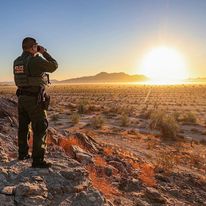Chemical security experts call for multisector cooperation against terrorism
The devastating impact of chemical weapons and explosives used in acts of terrorism continues to affect civilian populations and is well known for its destructive and long-term harm.
Last year over 1,000 improvised explosive device (IED) attacks were conducted by non-state actors, injuring over 7,150 people in more than 40 countries. Many attacks come from chemicals that criminals acquired through weak points in the supply chain – from manufacturing to storage and retail– and made into weapons.
To counter this threat, some 220 chemical security practitioners from more than 70 countries met at INTERPOL’s 3rd Global Congress on Chemical Security and Emerging Threats (25-27 October) to find ways of reducing vulnerabilities by enhancing multisector cooperation and collaboration.
With a focus on acquisition, transportation, physical and cyber security of chemical materials, the meeting highlighted a range of security issues, such as detecting cross-border movements of regulated material and implementing regulatory frameworks.
“Multisector collaboration is essential for us to tackle the threats we face from criminals who gain access to dangerous chemicals with malevolent intentions. Morocco is committed to strengthening the engagement of these issues as part of our proactive approach to combating terrorism,” said Mr. Mohammed Dkhissi, Head of National Central Bureau, Rabat.
Other measures proposed by the Global Congress Network include:
- Advocating chemical security recommendations such as increased retail reporting on suspicious activity;
- Expanding the INTERPOL-hosted Global Knowledge Hub, which allows members to engage in interactive discussions and access good practice guidance;
- Strengthening the Global Congress Network through greater diversity of expertise and activities across regions and sectors;
- Promoting decision-making tools such as a customer database, which can flag areas of security concern.
Since its inception in 2018, the Global Congress has been jointly led by INTERPOL, the US Cybersecurity and Infrastructure Security Agency (CISA), the US Defense Threat Reduction Agency (DTRA) and the US Federal Bureau of Investigation (FBI), and implemented in cooperation with the G7 Global Partnership Against the Spread of Weapons and Materials of Mass Destruction.




